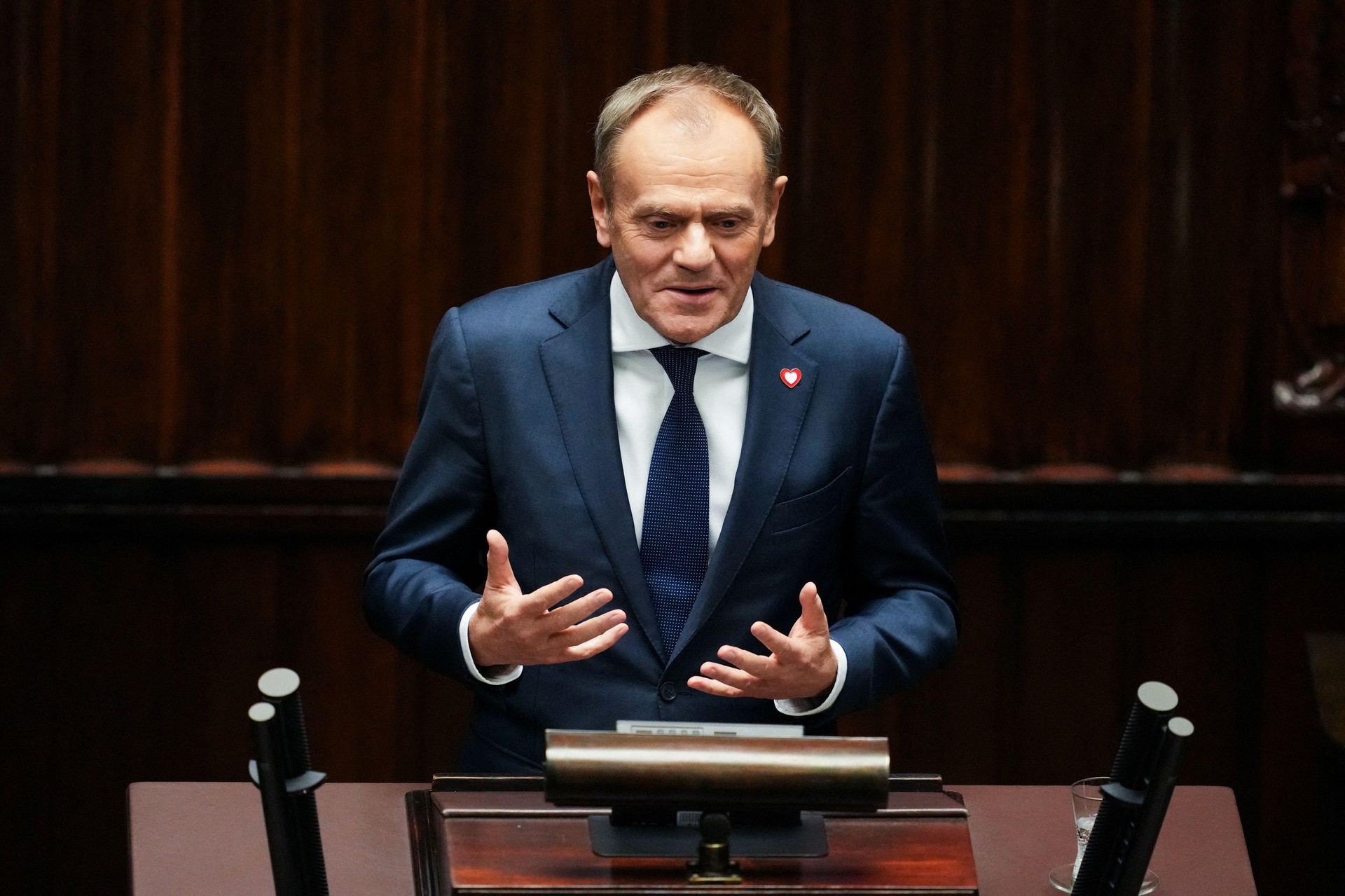
Poland's local election stands as crucial test for ruling pro-European coalition led by Prime Minister Donald Tusk, who aims to overturn "age of populism" ushered in by the previous nationalist government
Poland went to the polls on Sunday in a crucial local election, with the ruling pro-European coalition aiming to overturn what they perceive as an "age of populism" ushered in by the previous nationalist government.
The election marks a pivotal moment for the ruling centre-left coalition led by Prime Minister Donald Tusk, following their victory in the October general election.
Across the EU and NATO member state of 38 million people, voters are tasked with selecting mayors and local and regional government representatives from a pool of nearly 200,000 candidates.
Stanislaw Mocek, a professor at Warsaw's Collegium Civitas university, described the vote as "tantamount to a referendum on the political parties," reflecting the broader sentiment at play.
Opinion polls indicate a tight race between Tusk's centrist Civic Coalition (KO) and the nationalist Law and Justice party (PiS), both hovering just below 30 percent in popular support.
"Everyone who does not want others to decide their fate should vote today," Prime Minister Tusk urged, casting his ballot in his hometown of Sopot.
While the election serves as a national litmus test for the two leading parties, its outcome will significantly impact the composition of the country's 16 regional councils.
The ruling coalition, contesting separately, aims to secure victories in all but one of these regions.
The Civic Coalition relies on support from allies such as the Christian-Democratic party Third Way and the Left party to bolster the pro-European agenda.
In contrast, the PiS, which currently governs in five regions, may seek alliances with the far-right Confederation or smaller regional factions post-election.
Analysts like Anna Materska-Sosnowska of the Stefan Batory Foundation see the election as pivotal, potentially confirming a rejection of what they term "undemocratic tendencies" among Polish voters.
Tusk, who previously served as the European Council head, emphasized the importance of rebuilding the rule of law, contrasting it with the policies of the PiS.
His ally Rafal Trzaskowski, the incumbent mayor of Warsaw seeking reelection, framed the election as a crucial step towards ending the era of populism represented by the PiS.
Criticism has arisen against the Tusk government for perceived sluggishness in enacting reforms during its initial 100 days in office, underscoring the stakes of this election.
For the PiS, maintaining its status as the largest party in parliament is paramount, with hopes of reclaiming power in the future.
Former PiS Prime Minister Mateusz Morawiecki warned of a challenging road ahead, acknowledging the party's strong support base in rural areas and smaller towns.
In contrast, urban centers are expected to lean towards the ruling coalition.
Campaign discourse primarily revolved around local concerns such as transportation, housing, and decentralization, a departure from the centralized policies of the PiS.
However, issues like protests against the EU's Green Deal and tensions over agricultural policies added complexity to the electoral landscape.
Turnout, while unlikely to match last year's record-high, is anticipated to be significant, reflecting the electorate's engagement in shaping the country's trajectory.
Source: AFP